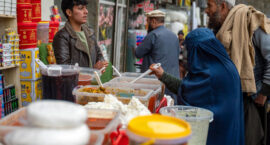
Over the last 15 years, I have had the privilege of meeting mothers and their children around the world. The universal experiences of motherhood—from the challenges of pregnancy and birth, to cooing over a newborn child—can make it seem that pregnancy, childbirth and motherhood are a great equalizer. But my own experience and my work have reinforced that motherhood remains undeniably influenced by privilege and power.
There is no single intervention that will stop complications in pregnancies, halt premature births and end neonatal deaths. But that shouldn’t stop us from making full use of what we know can make a difference for many.











